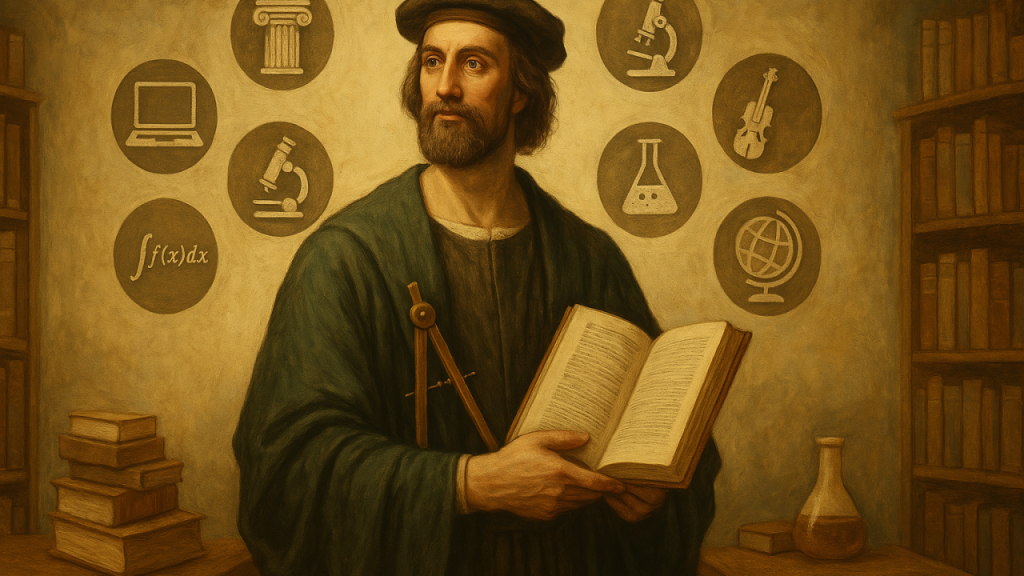Maybe We’ve Over-Specialized

I’ve been thinking a lot about why I love this new era of AI. It’s not just about getting quick answers; it’s about using technology to connect dots we never thought to connect. Ideas, disciplines, businesses, entire industries, things that once felt unrelated but turn out to be pieces of the same puzzle. That, I believe, is where our biggest innovations will come from. But only if we don’t trap ourselves in hyper-specialization.
This all started earlier this week when I went down the Mixture of Experts (MoE) vs. dense network rabbit hole. I couldn’t shake the question: What are we optimizing for as a society, and what are the implications for business and how we operate? Over the last few days, it’s become clear that this isn’t just an AI issue. Whether we’re running companies, building teams, or organizing entire communities, we’ve fallen in love with specialization. It’s smooth and efficient, until you realize nobody’s looking beyond the current task to see if a bigger opportunity is lurking around the corner.
We celebrate specialists everywhere. Marketing does marketing, operations does operations, HR does HR, and everyone believes they’re at peak performance. But are we missing something?
Picture a mid-sized manufacturing plant making steel components for wind turbines. They might dominate that niche, nailing every KPI. But who’s even considering whether their steel could be adapted for electric vehicles, or whether they could license their forging processes to other factories? Probably nobody, it’s just not on the to-do list. That’s over-specialization paralysis: you get so good at one thing that you forget to ask if you should try something else. (Perhaps not a greate example but the best I could think of).
Historically, we specialized because we didn’t have the time, tools, or capital to tackle everything. I remember being told, “Don’t boil the ocean,” back when I was in consulting. But with AI, do we really need to think that way anymore? AI lets us analyze and remix vast troves of information at lightning speed. The real question is whether we’ll use it to expand our horizons—or just lock ourselves into narrower silos more efficiently than ever. That, to me, is the trade-off: more specialization, or deeper understanding?
I’m not saying we should all become generalists overnight—brain surgery is best left to people who’ve devoted themselves to neurosurgery. But when we’re building the tools of tomorrow, maybe we should remember we don’t need to be as specialized as before. The truth often lies in the interconnected systems around us. If we keep dividing the world into rigid roles and departments, we risk stalling out on the edge of the next big idea. The world has changed. We owe it to ourselves—and maybe even to the world, to break out of these lanes. Let curiosity and open-mindedness guide us to connections we never considered.
One thing I do know: the old constraints (lack of data, lack of computing power, lack of global collaboration) are disappearing fast. We can’t keep blaming them for staying in our silos. If the MoE model teaches us anything, it’s that some approaches are too narrow. Maybe it’s time we looked for the sweet spot between “fast answers” and “full understanding.”
After all, the biggest leaps—those that create new markets, new technologies, and entirely new ways of thinking—usually happen when different fields, ideas, or experiences collide. That’s where real brilliance shines, not just efficiency. And if our new AI tools can help us open up instead of close down, we should probably give that a shot.
Share this post: